Who we are
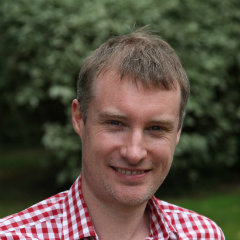 Alex is an Associate Professor in Environment and Development at the University of Reading. His research focusses on understanding human responses to environmental change, particularly those concerning migration, displacement and planned resettlement. Most of his research has taken place examining these issues in Mozambique and the Maldives.
Alex is an Associate Professor in Environment and Development at the University of Reading. His research focusses on understanding human responses to environmental change, particularly those concerning migration, displacement and planned resettlement. Most of his research has taken place examining these issues in Mozambique and the Maldives.
Prior to joining Reading, Alex worked at the Institute of Development Studies (IDS) in the UK on climate change adaptation policy and practice.
Aishath Azfa
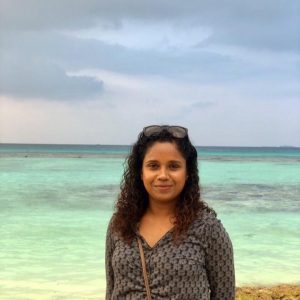
Aishath is a human geographer working in the areas of climate adaptation, development policy and planning, social inclusion and gender. She has over 15 years of experience working in the development sector of the Maldives serving in both government and international development agencies including the United Nations, Asian Development Bank, the World Bank (Maldives, Sri Lanka and Nepal), and the Resilient Island Foundation (Netherlands). Aisha holds a Master’s Degree in Sustainable Development from the University of Queensland and is currently undertaking a PhD in climate adaptation at the University of Melbourne. Her research focuses on the political economy of artificial islands and how such islands influence the social vulnerability, adaptive capacity and sense of community among the people relocating to them.
Mariyam Anaa Hassan
 Anaa is a human geographer with research interests in environment and development policy and climate change in island contexts. She is currently pursuing a PhD on a jointly awarded Universities of Melbourne and Manchester scholarship. Her thesis examines the fragilities and vulnerabilities of food systems in the Maldives, in times of disruptions.
Anaa is a human geographer with research interests in environment and development policy and climate change in island contexts. She is currently pursuing a PhD on a jointly awarded Universities of Melbourne and Manchester scholarship. Her thesis examines the fragilities and vulnerabilities of food systems in the Maldives, in times of disruptions.
She completed her Master’s degree in Environment, Development and Policy from the University of Sussex in 2017. Since then, she has worked in the Climate Change Department at the Ministry of Environment in the Maldives.
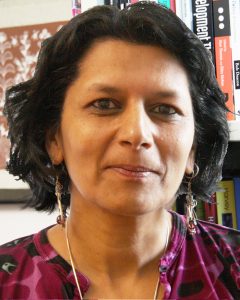 Uma is Professor of Migration and Postcolonial Studies and former Director of the Global Development Institute, at the University of Manchester, UK. Her research interests include international development and humanitarianism and migration, refugees and diasporas. Her research has involved a number of funded projects, most recently an Australian Research Council project on International Volunteering and Cosmopolitanism and a Norwegian Research Council project on Perceptions of Climate Change and Migration.
Uma is Professor of Migration and Postcolonial Studies and former Director of the Global Development Institute, at the University of Manchester, UK. Her research interests include international development and humanitarianism and migration, refugees and diasporas. Her research has involved a number of funded projects, most recently an Australian Research Council project on International Volunteering and Cosmopolitanism and a Norwegian Research Council project on Perceptions of Climate Change and Migration.
Her current research is on Visual Solidarity and Everyday Humanitarianism. She has published numerous articles and her books include Participation: the new tyranny?, Development Theory and Practice: critical perspectives, and A Radical History of Development Studies. She was recently made a Fellow of the Academy of Social Sciences and conferred the Royal Geographical Society’s Busk Medal for her contributions to research in support of global development.
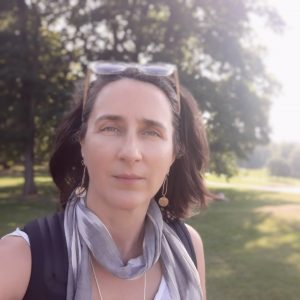 Celia is a Senior Lecturer at the University of Melbourne, Australia. Her research interests include migration and mobility, population health, and climate change. She has collaborated on a number of research projects, most recently a Linkage Project and a Discovery Project (funded by the Australian Research Council) both of which focus on human mobility, adaptation and climate change in small island states.
Celia is a Senior Lecturer at the University of Melbourne, Australia. Her research interests include migration and mobility, population health, and climate change. She has collaborated on a number of research projects, most recently a Linkage Project and a Discovery Project (funded by the Australian Research Council) both of which focus on human mobility, adaptation and climate change in small island states.
In addition to academic research and teaching, Celia has worked with international agencies in the area of international health including UNFPA (Sri Lanka), Red Cross/Red Crescent (Nepal, Philippines), and the World Health Organization (Angola). She is currently a contributing author to the Intergovernmental Panel on Climate Change Sixth Assessment Report and is collaborating on The Lancet Countdown: Tracking Progress on Health and Climate Change.
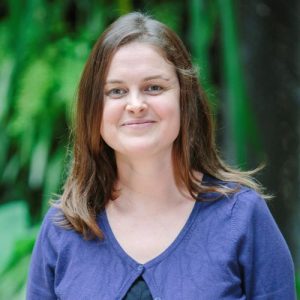 Karen is a Senior Lecturer in the School of Earth and Environmental Sciences at The University of Queensland (UQ). As a human geographer, Karen undertakes research into the impacts of, and responses to, environmental change on people’s livelihoods, particularly in the Pacific Islands region and parts of Asia. Karen has been undertaking research in this area for over fifteen years, partnering with numerous governments, and inter-governmental and non-governmental organisations throughout the Asia-Pacific region. She has published more than 70 academic papers and book chapters.
Karen is a Senior Lecturer in the School of Earth and Environmental Sciences at The University of Queensland (UQ). As a human geographer, Karen undertakes research into the impacts of, and responses to, environmental change on people’s livelihoods, particularly in the Pacific Islands region and parts of Asia. Karen has been undertaking research in this area for over fifteen years, partnering with numerous governments, and inter-governmental and non-governmental organisations throughout the Asia-Pacific region. She has published more than 70 academic papers and book chapters.
Karen is currently involved in a number of projects on community-based climate change adaptation, human mobilities, and everyday experiences of climate change. She has undertaken a number of research projects for the Australian Government, European Union, United Nations Development Programme, United Nations Educational, Scientific and Cultural Organization, and others. She currently supervises 9 PhD students, and is a member of the United Nations University’s ‘Resilience Academy’, Integrated Research on Disaster Risk’s ‘Young Scientists Programme’, and an Associate with the Queensland Centre for Population Research (UQ). Karen serves on the Editorial Boards of the International Journal of Disaster Risk Science, Urban Island Studies, and the APN Science Bulletin.
